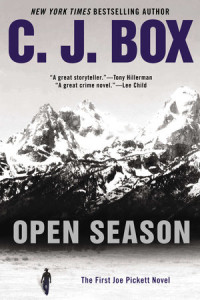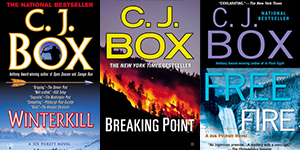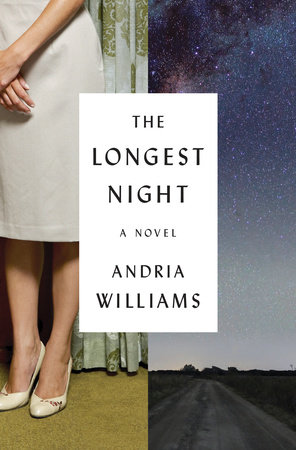We know readers tend to be writers too, so we feature writing tips from our authors. Who better to offer advice, insight, and inspiration than the authors you admire? They’ll answer several questions about their work, share their go-to techniques and more. Now, get writing!
Is there something you do to get into a writing mood? Somewhere you go or something you do to get thinking?
In the early morning, I consume coffee, turn on my computer, plant my butt in my desk chair in my home office, and let my cats get settled into their usual spots. I quickly check email and look at the headlines on a news site to see if the world has blown up outside my bubble. If I don’t need to duck for cover, I start working. I stay off social media until noon (that’s my plan, anyway). Each of my books has its own digital journal: it’s for stream of consciousness stuff, whatever’s on my mind. I open the journal for my current book and type like mad for a few minutes. It helps me discharge anything that’s weighing on me so I can move on. Then I open my manuscript and revise the last few pages I wrote the prior day, which leads into the new day’s work. For those days when the work just isn’t happening, I make deals with myself. Write for 45 minutes and get up and do something else for 15. Write until lunchtime and then do something else. Oddly, times of personal crisis are excellent writing periods for me because what better escape is there than to immerse yourself in a good book?
How would you recommend creating and getting to know your characters?
I start by naming them. By going through that process, I think through their history, circumstances, and personalities. When was she born? What’s her ethnicity? What’s her birth order in the family? Was she raised in a traditional two-parent family or something else? Would her parents have selected a popular name of the era or something unique? Does she come from a modest background or is she well heeled? Does she later change her name or go by a nickname? Is her name evocative of who she is? The protagonist of my current series of suspense novels is Nan Vining. She’s rooted in tradition and family, so I named after her grandmother, Nanette. But she’s tough, so her nickname, “Nan,” is clipped and direct. I liked the surname Vining because it’s uncommon and has a lot of consonants, which for me makes a tougher sounding name than one with many vowels. Also, it evokes a vine, which is appropriate for Nan who’s tenacious and steady. Her name is a great fit for her, but I’ve changed names when a character has evolved and the name no longer works. Thank goodness for “Find and Replace.”
Did you always want to write? How did you start your career as an author?
I fell in love with writing and reading before I really learned how to do either one. When I was about four years old, I could write my name, with the Ns backward, and three words: yes, no, zoo. My mom was a reader and I was fascinated with her books. I’d look through the pages and pick out the few words I could read. When I got to the white area after a chapter break, I thought that space was there for me to finish the story. I’d take a crayon and have at it, writing, “yes, no, zoo,” and signing my name with backward Ns. It didn’t make my mom too happy to find me scribbling in her books. After I truly learned how to read and write, I wrote compulsively—letters, diaries, stories—but didn’t attempt to publish anything. I didn’t feel I was good enough. Many years later, I took a creative writing class at UCLA, where I started my first novel. After three years, while working fulltime at a day job, I finished that book and got it published. I’ve been writing and publishing fiction ever since.
What’s the best piece of advice you have received?
Finish that first draft, even if it’s a big, flawed mess. And then the next best piece of advice I’ve received comes into play: Writing is about rewriting.
What are the perks and challenges of writing a come-back character?
Five years passed between my last Detective Nan Vining thriller and my latest one,
Killing Secrets. During that time, I wrote a standalone,
The Night Visitor, and several short stories. The challenge in returning to the Nan Vining series came from reconnecting with the four earlier books and wondering whether I could still channel the writer who had created that vibrant world. I was afraid I’d somehow lost my feel for Nan, her daughter Emily, her work partner and lover Jim Kissick, and the other characters as well as the dark thread that runs through the series. My doubts disappeared when I started
Killing Secrets and it felt entirely natural, as if I’d come home. It felt great to return to this familiar tableau, but also to break new ground. I’ve just signed a contract with Alibi to write the sixth and seventh in the Nan Vining series and I’m excited to see where the journey takes the characters and me.
Read More about
Killing Secrets here.
 Although the first Joe Pickett novel (Open Season) was written as a one-off at the time, the characters, themes, location, and style introduced in that book provided a great framework for the series to grow. I’ve never had to regret the foundation laid in that book. Also, because the books take place in real time the characters mature and change from book to book. For example, Joe Pickett’s daughter Sheridan is seven years old in Open Season and now 22 in Off the Grid. Because the characters get older and benefit (or not) from previous situations in the books I think that helps keep the series fresh. Plus, since each book includes a theme or controversy unique to the story (endangered species, alternative energy, the ethics of hunting, or in the case of Off the Grid — domestic terrorism) they are all stand-alones in their own way.
A lot of your longtime fans will be happy that your character Nate Romanowski features prominently in Off the Grid. From a writer’s standpoint, what is involved in making Nate so interesting and unpredictable?
Unlike just about every other character in the series, Nate Romanowski is based on a friend of mine although I’ve exaggerated (Thank God) his personality. The buddy I grew up with was a big blonde middle linebacker who later went on to join the military and special forces. He took me falconry hunting and through him I was introduced to the very strange and fascinating world of falconers and the mindset that goes with it. And, of course, Nate carries one of the largest handguns in the world and he’s good with it.
For a reader coming to your Joe Pickett novels for the first time, which of your backlist titles, from Open Season onward, would you recommend they check out first and why?
Although the first Joe Pickett novel (Open Season) was written as a one-off at the time, the characters, themes, location, and style introduced in that book provided a great framework for the series to grow. I’ve never had to regret the foundation laid in that book. Also, because the books take place in real time the characters mature and change from book to book. For example, Joe Pickett’s daughter Sheridan is seven years old in Open Season and now 22 in Off the Grid. Because the characters get older and benefit (or not) from previous situations in the books I think that helps keep the series fresh. Plus, since each book includes a theme or controversy unique to the story (endangered species, alternative energy, the ethics of hunting, or in the case of Off the Grid — domestic terrorism) they are all stand-alones in their own way.
A lot of your longtime fans will be happy that your character Nate Romanowski features prominently in Off the Grid. From a writer’s standpoint, what is involved in making Nate so interesting and unpredictable?
Unlike just about every other character in the series, Nate Romanowski is based on a friend of mine although I’ve exaggerated (Thank God) his personality. The buddy I grew up with was a big blonde middle linebacker who later went on to join the military and special forces. He took me falconry hunting and through him I was introduced to the very strange and fascinating world of falconers and the mindset that goes with it. And, of course, Nate carries one of the largest handguns in the world and he’s good with it.
For a reader coming to your Joe Pickett novels for the first time, which of your backlist titles, from Open Season onward, would you recommend they check out first and why?
 Tough question, since in their way each book stands alone. No reader would be hopelessly lost starting with any book in the series. Of course, those who’ve read them all say it’s important to start with OPEN SEASON so the reader can experience Joe’s family growing and changing, and I probably lean that direction. But there are certain books —Winterkill, Free Fire, Breaking Point, andOff the Grid – that I think could be good entry points into the series.
Find out more about C.J. Box’s books below.
Tough question, since in their way each book stands alone. No reader would be hopelessly lost starting with any book in the series. Of course, those who’ve read them all say it’s important to start with OPEN SEASON so the reader can experience Joe’s family growing and changing, and I probably lean that direction. But there are certain books —Winterkill, Free Fire, Breaking Point, andOff the Grid – that I think could be good entry points into the series.
Find out more about C.J. Box’s books below.





















